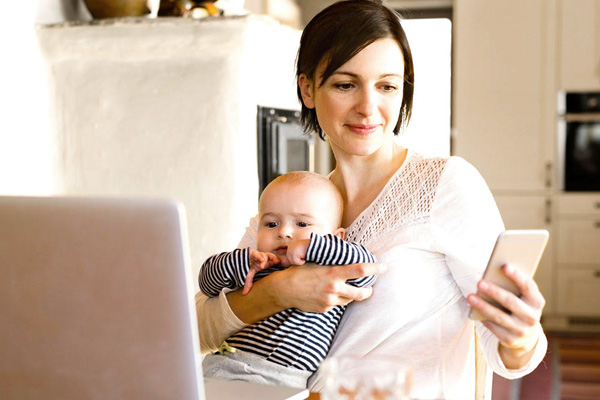SCROLLING NOT STROLLING –
April 29, 2022 – Experts have been studying the effects of smartphones on parents for almost as long as we’ve had phones to distract us from our kids. And the evidence, according to several studies over about a decade, certainly suggests that phones really do have the potential to make us worse parents. Not only are we less likely to pay attention to our kids’ physical safety when we’re tapping and scrolling, we can also miss their emotional cues and the kinds of quality interactions especially important for younger kids’ development.
Before we all throw our smartphones out the window, it’s important to define exactly what we mean by distracted parenting. “Phone use during parenting is very nuanced,” says Dr. Brandon McDaniel, a research scientist at the Parkview Mirro Center for Research and Innovation who has extensively studied the effect of technology on parents and children. According to McDaniel, there are positive as well as negative ways to use your phone when you’re with your kids. Positive ways might include reaching out to a friend for moral support when you’re at your frustration limit, or to get useful information (”hey, Siri, should my baby’s poop be purple?”). There are also the simply unavoidable times when we need to answer a work call or respond to a text from a spouse or caregiver. McDaniel says this type of distracted parenting is probably benign: “Occasional phone use will likely not cause any long-term negative effects,” he says.
A less useful, and more problematic, form of tech use during parenting is using the phone as an escape from the unpleasant feelings like stress, boredom, and loneliness that are all integral to being a parent, no matter how much you love your kids. The real problem with this sort of voluntary distracted parenting — as opposed to accomplishing a quick and necessary task — is that it often backfires.
“Occasionally parents say playing a game or scrolling social media distracted them from how negative they were feeling and they were able to re-engage with their kids, although that’s rare,” McDaniel says. “More often, these ‘escape’ types of uses result in feelings of guilt or wasted time.”



